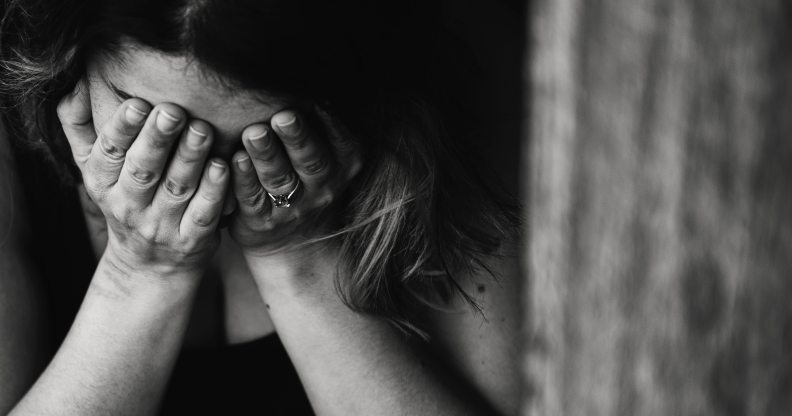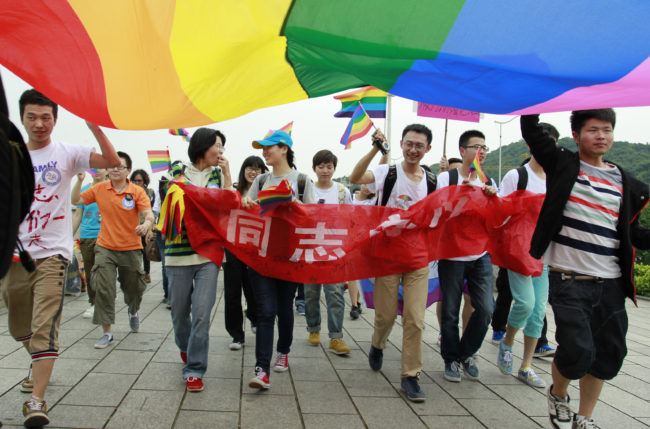More than 80% of LGBT students in China report depression

Around 85% of LGBTQ students in China report struggling with depression, according to a survey.
The poll, carried out by Beijing Normal University and analysed by Chinese news site Caixin Global, found a further 40% had considered suicide.
More than 700 LGBTQ students from 29 provinces were polled.

Youngsters march on the street during an anti-discrimination parade in Changsha, central China’s Hunan province (STR/AFP/Getty Images)
The survey found more than 80% of respondents had come out to someone, but three quarters had not told their parents, other relatives or teachers.
Only 2.9% said they had supportive teachers.
The report found having a more inclusive school climate and more school resources, in particular positive LGBTQ role models, improved LGBTQ students’ mental health.
LGBT+ issues censored in China
China decriminalised homosexual acts in 1997, but LGBTQ communities in the country have been subjected to censorship and discrimination under the Communist government.
Last month, the Chinese microblogging website Sina Weibo reportedly began removing posts and comments with the hashtag #les.
The ban on the term, which is short for lesbian, was discovered by users who use the site’s “super topic” feature, where people can create online communities using a hashtag.
Challenges faced by China’s LGBT+ community, include high rates of violence and depression among its transgender population.
The move is said to be part of a new campaign by China’s National Office Against Pornographic and Illegal Publications.
Earlier this year, scenes referencing Freddie Mercury’s sexuality were removed from Bohemian Rhapsody, ahead of the film’s release in China.
Key moments making Mercury’s bisexuality explicit were cut from the film, including intimate kisses between Rami Malek’s Mercury and other men.
Research has revealed a number of challenges faced by China’s LGBT+ community, including high rates of violence and depression among its transgender population.
A poll released in 2017 found high numbers of transgender, non-binary, and gender-nonconforming people live in poverty and lack access to sufficient medical care.

